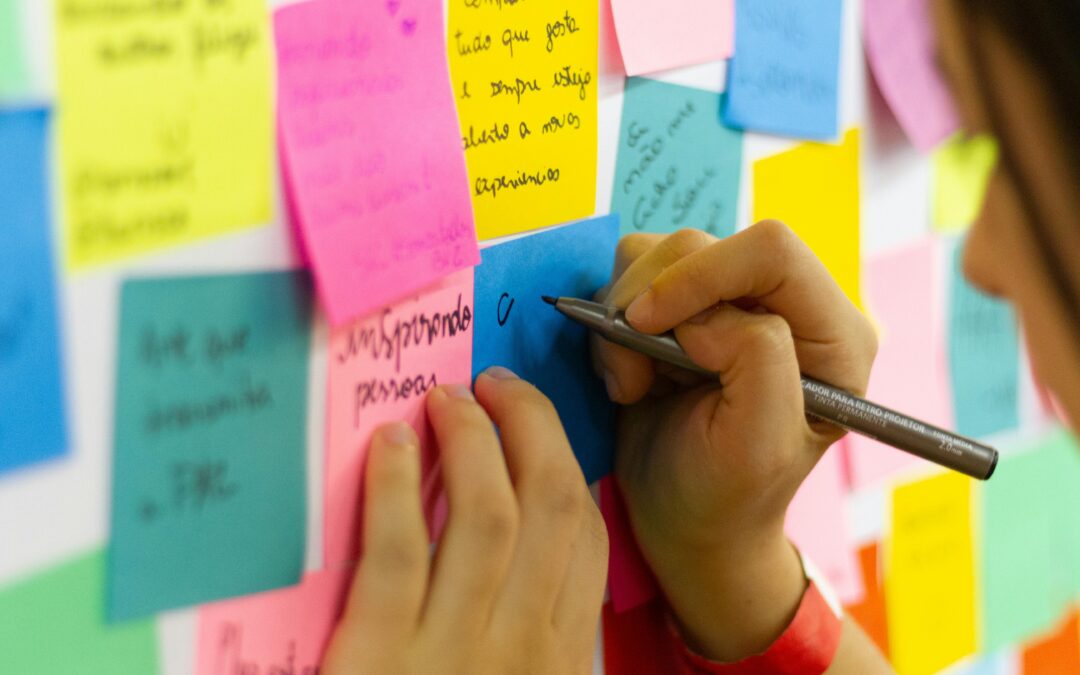Embarking on the journey of addressing societal issues through technical solutions is not just a university-level experience; it’s a mindset we should instil in students from an early age. Recognizing this, we brought the innovative concept of “Inspire” to a number of schools in the Greater Victoria region, aiming to showcase the incredible possibilities that computer science and software development offer.
In a 12-week workshop series entitled “Computing & Sustainability,” approximately 60 high-school students engaged weekly in teams of 3 to 4 from September to December 2023, learning and navigating the entire software development process from ideation to technical implementation! Guided by the methodology of design thinking, students progressed through phases such as problem definition, ideation, empathizing with end-users, and prototyping, ultimately developing their own apps using the MIT App Inventor. All of this was done against the backdrop of exploring how software can address sustainability challenges in our community and globally.
These workshops not only equipped students with technical skills but also instil in them the belief that they can be active contributors to positive societal change through the transformative power of technology. By fostering a collaborative and innovative mindset, we are hoping to shape the next generation of tech-savvy problem solvers and societal change-makers.
Empowering Young Minds: Girls Shaping the Future of Computing and Sustainability
Fourteen enthusiastic girls from grades 10 to 12 at St. Margaret’s School engaged in our 12 week-long software development workshop series, all keenly interested in the world of computing. Some of them, with prior experience from their school’s robotics club, embraced the opportunity to support their teammates, especially during the coding sessions. As one participant shared, “I think coding is cool and fun, and while I’ve done some learning online, I think it’s a great opportunity to learn in person.”
What sets these girls’ experience apart is not just the step-by-step development of their own applications but the hands-on experience of programming them using the MIT App Inventor. This allowed them to showcase their creations on their own mobile phones to classmates, friends, and family, often leading to a “wow” moment as the first buttons designed on the screen come to life on their personal devices.
The girls had a clear vision right from the beginning of the workshop—to create games and apps with a map feature in the context of a social and sustainable impact. Expressing their aspirations, one participant stated, “Developing applications that educate people on sustainability and encourage them to participate in actions that aid the environment.” Another added, “Yes, since software engineers can create software that supports sustainability projects, such as trash-collecting robots at sea or programs that help us map out the carbon levels of a place.”
The diversity of their projects was impressive, ranging from a mobile app guiding users to healthy food options in Victoria, BC, complete with maps and reviews, to an engaging recycling game that educates kids about responsible recycling practices. Other apps included a directory of second-hand shops to promote sustainable shopping and a thought-provoking game posing questions about sustainability in their daily lives.
In closing, it’s truly heartening to witness these girls shaping the future of technology with their enthusiasm for computing. As they continue to develop and share their creations, we are reminded that the future of computer science is in good hands with these inspired young minds.
Inspiring Innovation at Claremont School
45 Students Tackling Sustainability ChallengesIn an innovative workshop at Claremont Secondary, 45 students from grade 9 participated in 12 teams as part of the Institute for Global Solutions class. While these students had a strong connection to social and societal issues, the link to computer science was not always evident. However, the unanimous agreement that software and sustainability go hand in hand was apparent among the students. Expressing this sentiment, one student remarked, “because they could design something to help with sustainability” and another stated, “yes, because software could be developed to better manage sustainable energy sources.”
The projects resulting from this collaboration were nothing short of diverse, with students often needing to be reined in during brainstorming sessions that touched on global problems, even extending beyond Earth. Examples included applications to prevent or recycle space debris. This showcases the students’ readiness for expansive thinking and the birth of innovative ideas.To keep the projects within scope and achieve tangible results, the focus shifted to issues within the Victoria community. The range of ideas proposed by the students was impressive:
- Jamakey: Making volunteering for students to clean up the ocean possible, targeting those who need volunteering hours.
- Mango’s Volunteering Society: Simplifying volunteering accessibility for busy young people, with multilingual support and centralized information.
- Aiding Atlas (Glitter): Aiming to improve the lives of those facing poverty in Downtown Victoria, providing access to basic needs.
- GNAS: Targeting the elimination of puppy mills in the Victoria area.
- No Clue: Creating an app to help women and kids under 16 feel safer in public.
- The Black End: Assisting people with criminal records in reintegrating with society.
- Happy Hospital: Educating children in hospitals about personal and planetary health.
- The People Who Are Making the Solar Panels: Running the IGS room off renewable energy from solar panels.
- Team Ted: A recycling game to teach kids about recycling.
- C.A.A.N.: An app for teachers and the public to learn and donate to promote biodiversity.
Coding, although initially frustrating, proved to have a steep learning curve. The students’ mutual support within and across teams was essential, fostering their self-efficacy. One student from the C.A.A.N team shared a moment of triumph in the final sessions: “The app is going really well!! I figured out a few things that really had me stumped, and I am super happy!!”
This inspiring initiative not only brought computer science and sustainability together but also showcased the incredible potential of young minds to tackle real-world challenges through innovative solutions.

